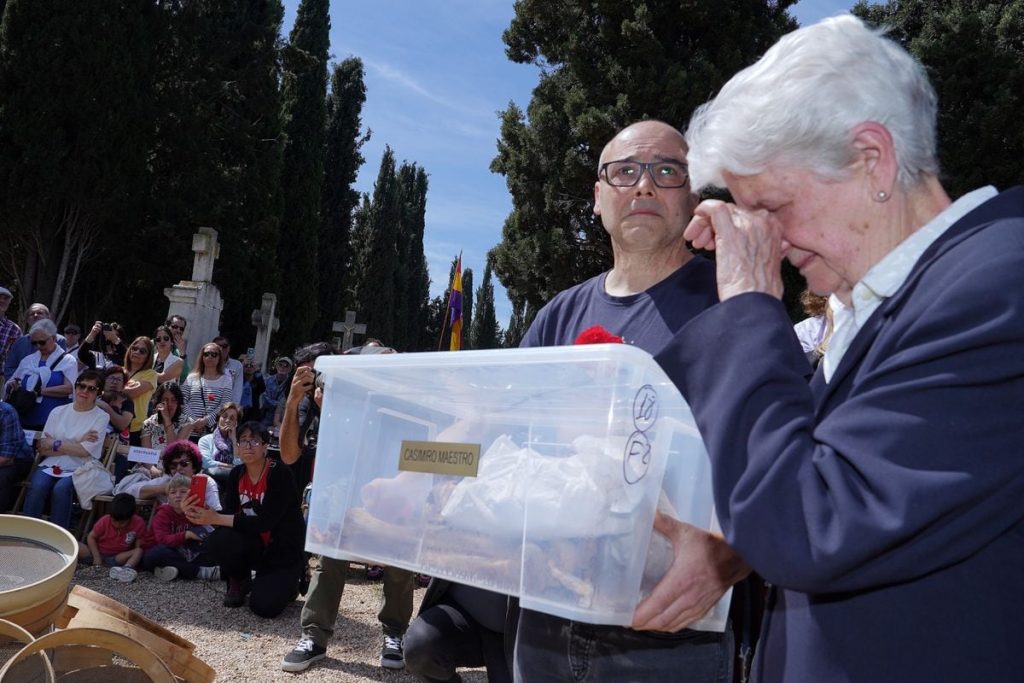Benita Maestro visits her father’s remains in the cemetery of Valladolid, shedding tears as she remembers the loss of her father, who was taken by the Franco regime when she was just a baby. Now at 87 years old, her voice trembles as she speaks with those who have coordinated the recovery and identification of the bones of Marcelino Maestro, former mayor of Renedo de Esgueva (Valladolid) and a victim of the fascist forces. Only three out of 199 different human remains found in a mass grave in the cemetery have been identified through DNA, including Maestro, Ángel Egaña, and Emilio Pedrero. The Association for the Recovery of Historical Memory (ARMH) has honored these victims and held a burial ceremony. Meanwhile, controversy surrounds the proposed “concordia” laws in Castilla y León to replace the “memoria” laws.
Hundreds of people gather in the cemetery of El Carmen near a mausoleum containing the skeletons of 245 individuals buried in 2020, most often incomplete and also from a mass grave. A large plaque lists their names and identifies them as murder victims. Beneath the concrete lie those whose identities are uncertain. The remains of Maestro, Egaña, and Pedrero have been handed over to their descendants, along with the other human remains found in the grave, and were buried on April 14th, the day of the Republic. Julio del Olmo, president of the local ARMH chapter, expresses gratitude for the support of families and associations, as well as the challenges faced due to lack of resources for exhumations and identification of remains.
Amidst a political climate influenced by the efforts of the PP and Vox parties in several regions to pass “concordia” laws, which diverge from previous Memory Laws and extend coverage to the period starting in 1931, starting from the II Republic. The Minister of Equality and former councilor of Valladolid Ana Redondo criticizes the absence of high-ranking officials from the Castilla y León government at the event, given their support for such controversial laws. She praises the work of the ARMH while condemning the actions of the PP and Vox, accusing them of insulting the victims and history by failing to recognize the atrocities that occurred. She emphasizes the government’s commitment to challenging these laws in judicial bodies if passed.
Vox did not attend the ceremony, while a delegation from the PP of Valladolid, led by the city’s mayor and senator Jesús Julio Carnero, was present. Carnero highlights the importance of dignified burials in a democratic country that has moved past dictatorship. The crowd expresses dissent, demanding more than just symbolic gestures. Attendees with diverse backgrounds participate in the event, reflecting on the significance of historical memory and commemoration of the victims of oppression. Families search for their ancestors’ names among the plaques and discuss the uncertainty surrounding their fates.
Antonio Maestro, aged 90, receives the remains of his father, who was executed for his leftist affiliations, and delivers a heartfelt speech thanking everyone in attendance. He declares the day as historic and transformative for his family, shifting from tears of sorrow to tears of joy. The event highlights the ongoing struggle for recognition and justice for the victims of past atrocities, as the debate over historical memory and reconciliation continues in the political sphere.















